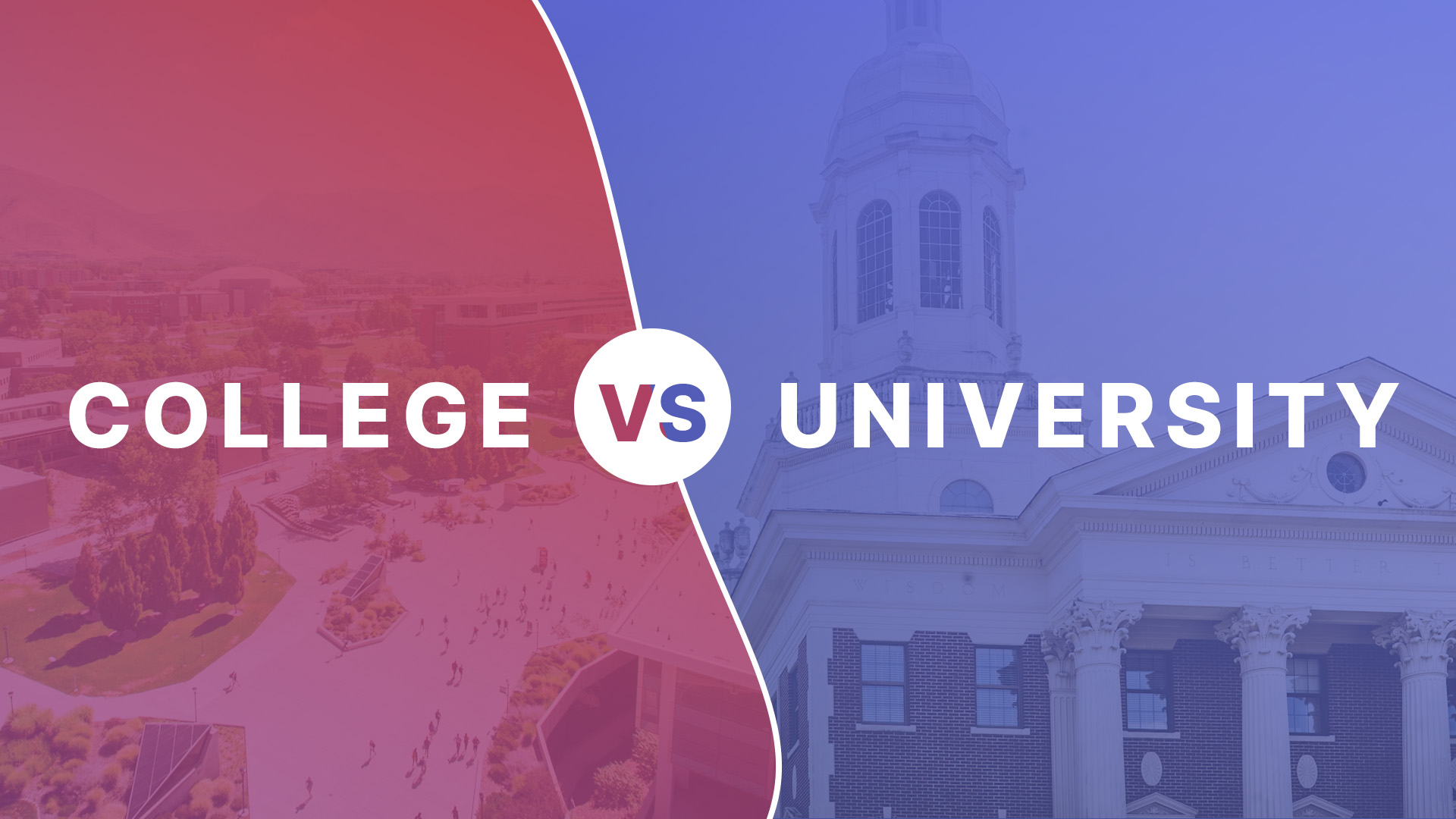college

An institution where students prepare for their careers, acquire specialised knowledge, and enter the workforce, college is sometimes depicted as the pinnacle of a young person’s journey. College, however, is much more than a means of obtaining employment. It’s a life-changing time of connection, personal development, and discovery. Many people use college as a time to learn about themselves, gain fresh viewpoints, and create lifelong experiences. Here You can Download College Apps Spreadsheet Template
The important part of College Life
College as an Institute for Learning and Find out:
- College offers professional instruction in a number of subjects.
- builds problem-solving, creativity, and logical thinking.
- improves logical thinking, creativity, and problem-solving skills.
Human Development and Independence college university:
- College fosters independence by living away from home.
- Students manage finances, cook, and organize their time.
- A time for students to mature and form their own identities.
Developing strong relations:
- There are chances to meet a variety of people at college.
- Class, dorms, and clubs are common places for friendships that survive a lifetime.
- College creates interaction with others and a network of care.
Learning to Know Equal opportunity:
- Students in college come from a variety of cultures and backgrounds.
- Interacting with people from different backgrounds increases awareness .
- improves a person’s prepares pupils for the workplace and a globalised society.
Life Skills and Cultural Events:
- Students participate in clubs, athletics, the arts, and volunteer work.
- Extracurricular activities impart time management, communication, teamwork, and leadership skills.
- Develops self-assurance, a comprehensive CV, and a feeling of community.
Fighting challenges and Developing Strength:
- College life covers academic, social, and emotional challenges.
- Students develop skills in dealing with stress, asking for assistance, and solving issues.
- Builds capacity and mental ability.

College vs University:
Size and Scope:
- College: Small in size institutions focused on undergraduate education.
University: Large in size institutions that offer both undergraduate and graduate programs.
Programs Offered: - College: Offers bachelor’s degree programs in a limited fields.
University: Offers a Multiple undergraduate, graduate, and doctoral programs in many disciplines.
Degrees: - College: provides bachelor’s degrees (e.g., BA, BS).
University: Offers bachelor’s degrees, master’s degrees, and doctoral degrees (e.g., MA, MS, PhD).
Research Opportunities: - College: Limited in research opportunities, with a focus more on teaching and learning.
University: Extensive research opportunities, with dedicated departments, faculty, and resources for research in various fields.
Campus Life: - College: Smaller campuses with a more close-knit, personal community.
University: Larger campuses with more diverse student activities, organizations, and events.
Faculty and Class Size: - College: Smaller class sizes with more personalized attention from professors.
University: Larger class sizes with some courses taught by graduate assistants or lecturers, although smaller seminars may still be available.
Focus: - College: Emphasis on teaching, student engagement, and personal development.
University: A balance between teaching, research, and graduate-level education.
Location and Campus: - College: May be located in smaller towns or rural areas.
University: Typically located in larger cities, with sprawling campuses and extensive facilities.
Cost and Financial Aid: - College: May have lower tuition fees due to smaller size, but this varies.
University: Often higher tuition, but offers more extensive financial aid, scholarships, and research assistantships for graduate students.
Global Recognition: - College: More regionally focused, though some have national recognition in specific fields.
University: Usually more widely recognized globally, especially top universities with well-known graduate programs. - Here you can Read College Student Foot Ball League

College Rules:
Understanding Expectations and Responsibilities
Introduction to College Rules:
College rules are the set of guidelines designed to promote a safe, productive, and respectful learning environment for students, faculty, and staff.
Rules vary between institutions but generally cover aspects such as academic integrity, student behavior, campus safety, and use of resources.
Academic Integrity Rules:
Plagiarism is strictly prohibited: Students must properly cite sources and submit original work.
Cheating during exams or assignments can lead to disciplinary actions, including failing grades or expulsion.
Collaboration guidelines:
- While group work is encouraged in some contexts, students should know when independent work is required.
Exam rules: No unauthorized materials, such as phones or notes, during exams unless stated by the instructor.
Classroom Behavior Rules: - Punctuality is expected: Students should arrive on time and stay for the entire class unless there is a valid reason for leaving early.
- Respectful communication: Students must engage in respectful discussions and avoid disruptive behaviors like talking over others.
- Use of electronic devices: Many professors set rules for using phones, laptops, and tablets in class to prevent distractions.
- Dress code: While not always enforced strictly, some colleges may have guidelines for professional attire for certain events or courses, such as presentations or internships.
- Campus Conduct Rules: Respect for others: Students should treat peers, faculty, and staff with kindness and respect, fostering a positive campus culture.
- Substance use: Most colleges have clear policies regarding alcohol and drug use. Students are expected to follow local and state laws regarding consumption.
- Anti-discrimination: Discrimination, harassment, and bullying are prohibited, and colleges often have policies in place for reporting and resolving complaints.
- Code of conduct: Disruptive behavior, including fighting, vandalism, or any activity that jeopardizes safety, can result in disciplinary action.
Safety and Security Rules: - Campus security: Students should follow safety procedures, such as using designated campus entry/exit points and securing personal belongings.
- Emergency procedures: In case of fire, natural disasters, or other emergencies, students must adhere to evacuation plans and safety protocols.
- Alcohol and drugs: Many colleges have strict rules regarding the use, distribution, and possession of illegal drugs and alcohol on campus or at college-sponsored events.
- Weapons: Possessing weapons (guns, knives, etc.) on campus is typically prohibited unless specific exceptions apply for security personnel.
Technology and Internet Use Rules: - Acceptable use policies govern how students use the college’s Wi-Fi, computers, and online platforms.
Cybersecurity: Students must adhere to policies regarding the protection of personal information, avoiding hacking, or unauthorized access to networks. - Academic use of technology: Devices should be used primarily for educational purposes during class hours. Social media usage and gaming may be
- prohibited during lectures or study sessions. Email communication: Students should maintain professional and respectful language in email correspondence with faculty and peers.
- Residence Hall and Housing Rules: Quiet hours: Most colleges establish quiet hours in dormitories to ensure that students can study and sleep without excessive noise.
- Guest policies: Students may need to follow specific guest registration procedures, and overnight guests are often limited in residence halls.
Room checks and cleanliness: Regular room inspections might occur to ensure that students are maintaining safe, clean, and clutter-free living spaces. - Alcohol and drugs: College housing may enforce strict no-alcohol policies or specific rules regarding the consumption of alcohol and other substances in dorm rooms.
- Health and Wellness Rules: Health insurance: Some colleges require students to have health insurance and provide options for purchasing school-specific coverage.
- Vaccination requirements: Many colleges mandate certain vaccinations for students to attend classes or live on campus, such as measles, mumps, and rubella.
- Mental health resources: Students are encouraged to use available counseling and wellness services for emotional, psychological, and social support.
- Fitness and recreation: Students must follow rules for using recreational facilities, including adhering to hygiene standards and scheduling activities.
- Financial and Administrative Rules: Tuition payments: Students must adhere to deadlines for tuition payments and financial aid requirements to maintain enrollment.
- Student ID: The college ID must be carried and presented for various activities, including accessing facilities, library resources, and during exams.
Parking: Students must adhere to parking regulations, including purchasing permits, adhering to parking rules, and avoiding parking in restricted areas. - Library and resource usage: Students must follow library rules regarding book checkout, late fees, and use of study rooms.
- Social Media and Public Conduct: Social media policies: Students must be aware of their behavior on social media, as inappropriate online conduct (harassment, cyberbullying, etc.) can lead to disciplinary action.
- Public representation: Students are expected to represent the college appropriately during off-campus events or while engaging in college-affiliated activities.
- Disciplinary Actions for Violations: Consequences for violating college rules may include warnings, probation, suspension, or even expulsion, depending on the severity of the infraction.
Colleges typically have a disciplinary board or student conduct office to investigate complaints and enforce rules.
In some cases, violations of college policies may also result in criminal charges, especially if they involve illegal activities like theft or violence.
————————————
College Community: Promoting an Equal and Creative Setting
Introduction to College Community:
The colleges community refers to the diverse group of students, faculty, staff, and alumni who form the foundation of a college or university.
It is a space where individuals from various backgrounds come together to share experiences, engage in intellectual discourse, and grow personally and professionally.
A strong colleges community fosters inclusivity, support, and collaboration, making the college experience enriching for all members.
Key Elements of College Community:
Equality and Workplace diversity:
Colleges aim to create a diverse community by attracting students from various ethnic, cultural, and socioeconomic backgrounds.
Emphasis on promoting cultural awareness, tolerance, and acceptance among students, faculty, and staff.
Campus initiatives often focus on equity and inclusion, ensuring that all voices are heard and valued.
Student Life and Engagement:
The college community encourages active student participation through clubs, organizations, and student-run events.
Student life often includes cultural, artistic, academic, and social events, providing opportunities for students to connect and engage beyond the classroom.
Leadership opportunities in student government and organizations help students develop communication, collaboration, and decision-making skills.
Support Systems:
Colleges provide a variety of support services, including academic advising, counseling, and peer mentoring to ensure student success and well-being.
Mental health resources, such as counseling centers and stress management workshops, are integral in promoting emotional wellness.
Tutoring and writing centers help students who may need academic assistance, reinforcing the community’s commitment to their success.
Faculty and Student Relationships:
Faculty members serve not only as instructors but also as mentors, advisors, and sources of academic and professional guidance.
Close-knit faculty-student relationships foster an environment of intellectual curiosity and personal growth.
Faculty engagement with students in research projects and extra-curricular activities enhances the academic community.
Campus Resources and Facilities:
Colleges offer various resources such as libraries, sports facilities, study spaces, and cafeterias to enhance both academic and social aspects of student life.
Recreation and wellness programs encourage students to maintain a balanced lifestyle, promoting physical, mental, and social well-being.
The availability of student lounges, campus cafes, and other communal spaces helps foster social connections among students.
Collaboration and Networking Opportunities:
College communities promote collaborative learning through group projects, study groups, and interdisciplinary activities.
Networking events, such as career fairs, alumni panels, and industry talks, connect students with potential mentors, employers, and professionals in their field.
Internships and volunteer opportunities offer students hands-on experience, allowing them to build valuable connections within and beyond the college community.
Social and Extracurricular Engagement:
Colleges communities encourage students to pursue activities outside academics, such as joining clubs, sports teams, or participating in artistic performances.
Special interest groups and cultural organizations promote social engagement, helping students connect with peers who share similar interests.
Community service initiatives enable students to contribute to local causes, helping to create a positive impact on society.
Alumni Network:
A strong alumni network is a key feature of the colleges community, providing former students with opportunities for networking, career guidance, and support.
Alumni often give back by offering internships, job opportunities, or mentorship to current students, continuing the cycle of support within the community.
Alumni events and reunions help foster a lifelong connection between the college and its graduates.
Campus Culture and Traditions:
Every college has its own unique culture, traditions, and values, which play an essential role in building a strong community.
Annual events like homecoming, graduation ceremonies, and cultural festivals contribute to a sense of pride and belonging among students and alumni.
The college’s history, ethos, and shared experiences create a sense of unity and identity among its members.
Community Building and Volunteerism:
Many colleges encourage community involvement, organizing service projects that engage students with local neighborhoods and global issues.
Students often take part in volunteer work, charity events, and campus sustainability efforts to make a difference both on and off-campus.
Volunteering fosters a sense of responsibility, empathy, and social awareness, reinforcing the college’s role as a civic-minded institution.
Health and Wellness:
Colleges communities place a significant emphasis on promoting students’ physical, mental, and emotional health, with dedicated centers for fitness, nutrition, and counseling.
Activities like yoga classes, stress-relief programs, and workshops on mental health help students manage the pressures of college life.
Wellness centers and health clinics ensure that students have access to medical care, whether for physical health needs or mental health challenges.
Inclusivity in Leadership:
The college community encourages diverse leadership styles, with opportunities for students from all backgrounds to take leadership roles.
Student organizations, clubs, and faculty committees prioritize inclusive decision-making and ensure all voices are represented in college governance.
Colleges promote gender equality, LGBTQ+ rights, and racial justice, fostering an environment where everyone can thrive regardless of their identity.
Conclusion: The Colleges Experience
The colleges journey is a transformative phase of personal, academic, and professional growth. It provides students with the opportunity to deepen their knowledge, build lifelong skills, and establish meaningful relationships. College is not only about acquiring a degree but also about developing independence, exploring diverse perspectives, and engaging with a community that fosters both intellectual curiosity and personal well-being.
Through rigorous coursework, extracurricular involvement, and networking opportunities, colleges students are prepared to face the challenges of the professional world and contribute meaningfully to society. Ultimately, the college experience is a stepping stone toward success, offering students the tools, experiences, and confidence to shape their futures and make a lasting impact in their chosen fields.

